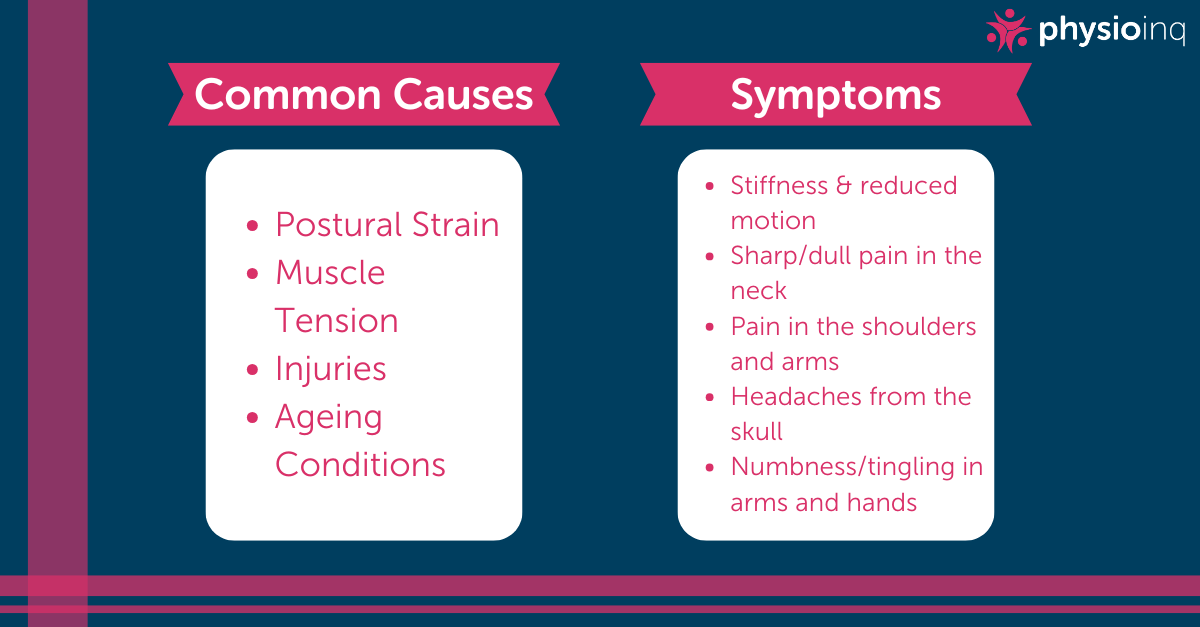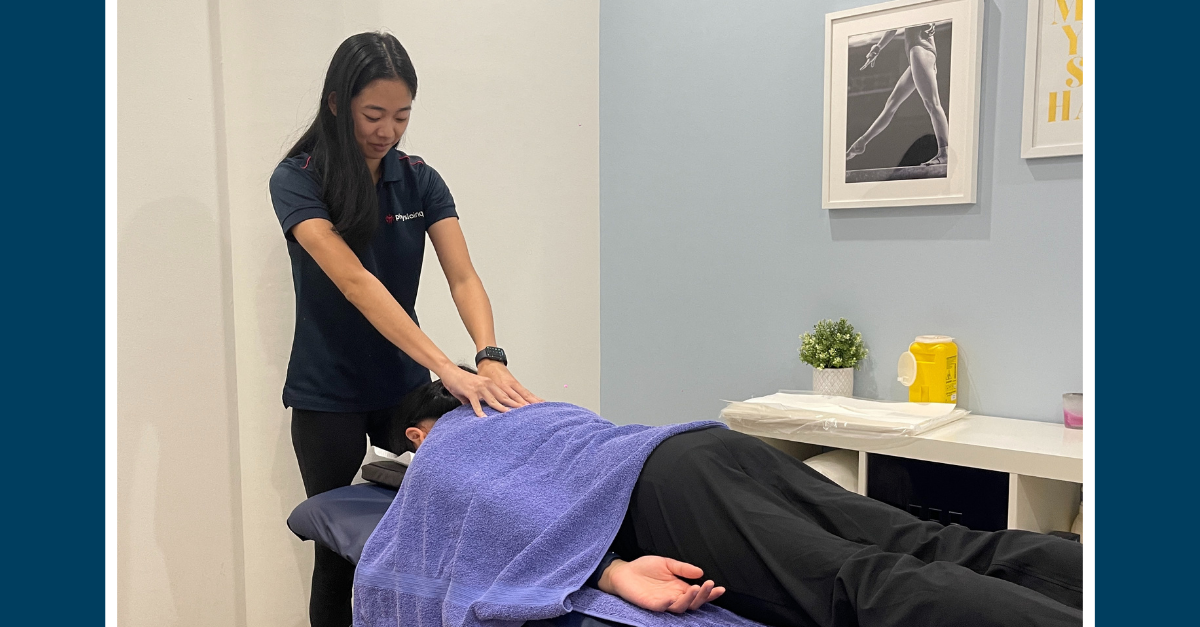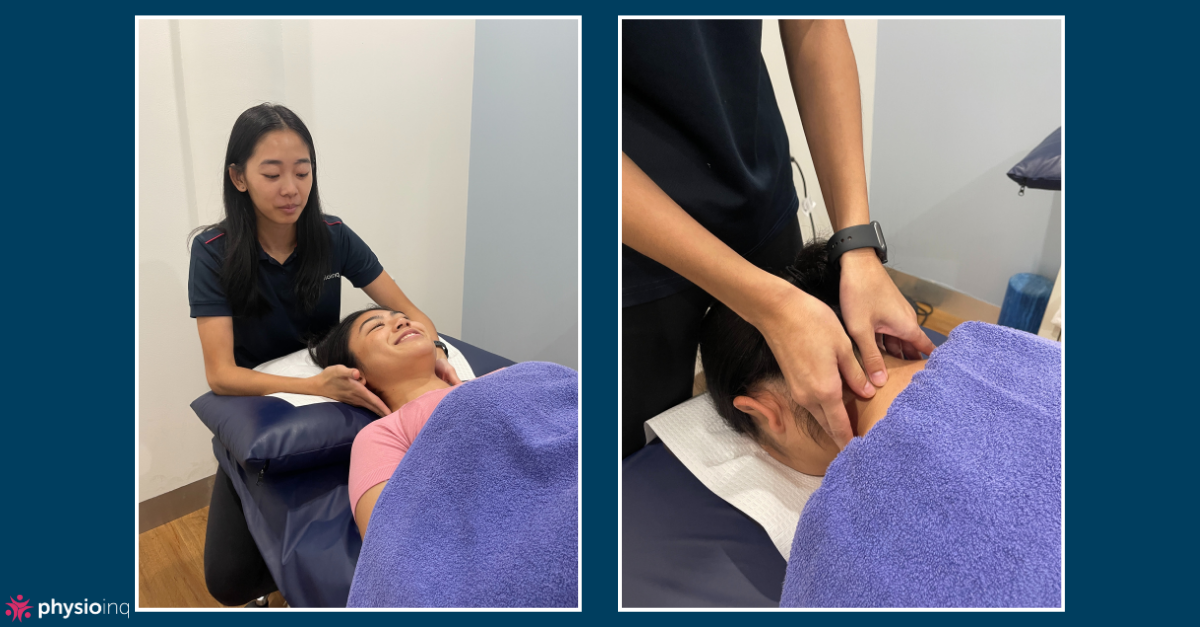Understanding Neck Pain
Friday, February 14, 2025
Common Causes of Neck Pain
Neck pain is a common issue that affects a wide range of people, with various contributing factors. Understanding these causes is essential for both prevention and effective management. Some of the most common causes of neck pain include poor posture, muscle tension, injuries, and age-related conditions
1. Postural Strain
In today’s digital age, prolonged screen time often leads to poor posture, such as forward head positioning, which places excessive strain on the neck muscles. Poor posture, especially when using smartphones or computers, is a significant contributor to neck discomfort. Many individuals unknowingly adopt positions that stress the cervical spine, which can lead to long-term problems if not addressed.
2. Muscle Tension
Stress, poor ergonomics, and inadequate support while sleeping can cause the muscles around the neck and shoulders to tighten, resulting in pain and stiffness. Emotional stress also plays a key role, as tension can manifest physically in the neck and shoulder area, intensifying discomfort.
3. Injuries
Sudden trauma, such as whiplash from a car accident or sports-related injuries, can lead to acute neck pain, sometimes accompanied by headaches or dizziness. These injuries can damage soft tissues, ligaments, or even vertebrae, leading to extended recovery periods and the need for targeted rehabilitation.
4. Ageing Conditions
As we age, degenerative conditions such as cervical spondylosis, osteoarthritis, and herniated discs can develop, causing chronic neck discomfort and reduced mobility. These conditions often lead to inflammation and nerve compression, resulting in persistent pain and, in some cases, neurological symptoms.
By understanding the various causes of neck pain, individuals can take proactive steps to prevent discomfort and manage symptoms more effectively.
Symptoms to Watch For
Recognising neck pain symptoms early can help prevent further complications. Common signs of neck pain include:
- Stiffness and a reduced range of motion
- Sharp or dull pain localised in the neck
- Radiating pain to the shoulders or arms
- Headaches originating from the base of the skull
- Numbness or tingling in the arms or hands
If these symptoms persist or worsen, seeking professional advice is essential to prevent long-term damage.

Tips to Prevent Neck Pain
Preventing neck pain involves adopting healthy lifestyle habits and making small adjustments. Here are some practical tips:
1. Keep it Moving!
Regular movement helps prevent stiffness and maintains flexibility. Avoid prolonged static positions, especially when working at a desk or using digital devices.
2. Take Breaks
Avoid remaining in a fixed position for too long, particularly when engaged in screen-based activities. Taking frequent breaks to stretch and change positions can reduce strain and alleviate discomfort.
3. Set Up an Ergonomic Workspace
Ensure that your desk, chair, and screen are set at appropriate heights to support good posture. Proper ergonomics reduce strain on the neck and help prevent unnecessary tension.
4. Exercise Regularly
Strengthening and stretching exercises, preferably prescribed by a physiotherapist, help maintain neck health. A well-balanced exercise routine improves posture, enhances mobility, and reduces the risk of recurrent neck pain.
5. Manage Stress
Incorporate relaxation techniques such as deep breathing, yoga, or meditation to reduce muscle tension. Effective stress management is crucial for overall musculoskeletal health.
By incorporating these tips into your daily routine, you can significantly reduce your risk of developing neck pain and improve your overall quality of life.

How Can We Help?
If you are struggling with persistent neck pain, seeking professional help can provide much-needed relief. Physiotherapy offers tailored solutions to address your unique condition:
1. Assessment and Diagnosis
A thorough evaluation helps determine the root cause of neck pain. From there, your physiotherapist can formulate a personalized treatment plan. Understanding the underlying issue allows for targeted intervention.
2. Manual Therapy
Techniques like joint mobilisations, soft tissue massage, and myofascial release help alleviate muscle tension and improve mobility. These hands-on approaches are particularly effective in reducing pain and restoring function.
3. Exercise Prescription
Targeted stretches and strengthening exercises correct imbalances, enhance posture, and support long-term neck health. A physiotherapist can create a customised program to address to your specific needs.
4. Posture Education
Learning proper ergonomics and posture retraining can significantly reduce daily strain on the neck. Simple adjustments to everyday habits can prevent chronic discomfort.
5. Pain Management Strategies
Modalities such as heat therapy, guided stretching, and therapeutic exercises can help alleviate pain and inflammation. When combined with lifestyle changes, these techniques can improve your overall quality of life.
If neck pain persists for more than a few days, worsens, or is accompanied by symptoms like numbness, tingling, or severe headaches, don’t wait - consult a physiotherapist. Professional care can offer tailored solutions to restore function, relieve pain, and improve your overall well-being.
Don’t let pain hold you back! Book an appointment with one of Harrington Park’s expert physiotherapists today!

References
https://www.ncbi.nlm.nih.gov/books/NBK338120/
https://pubmed.ncbi.nlm.nih.gov/37683100/
https://pubmed.ncbi.nlm.nih.gov/29088401/
https://pubmed.ncbi.nlm.nih.gov/18173978/
https://pmc.ncbi.nlm.nih.gov/articles/PMC8725362/

